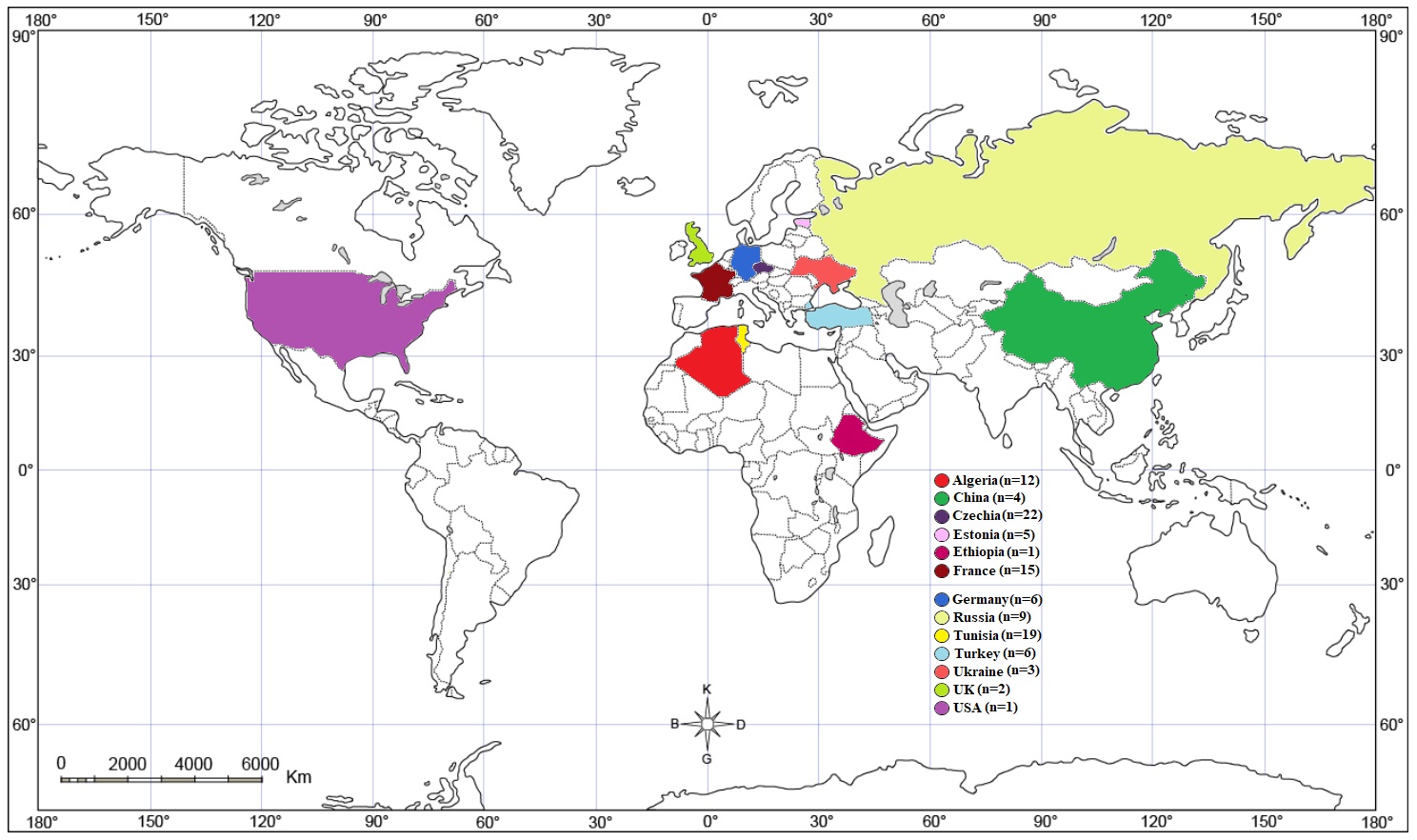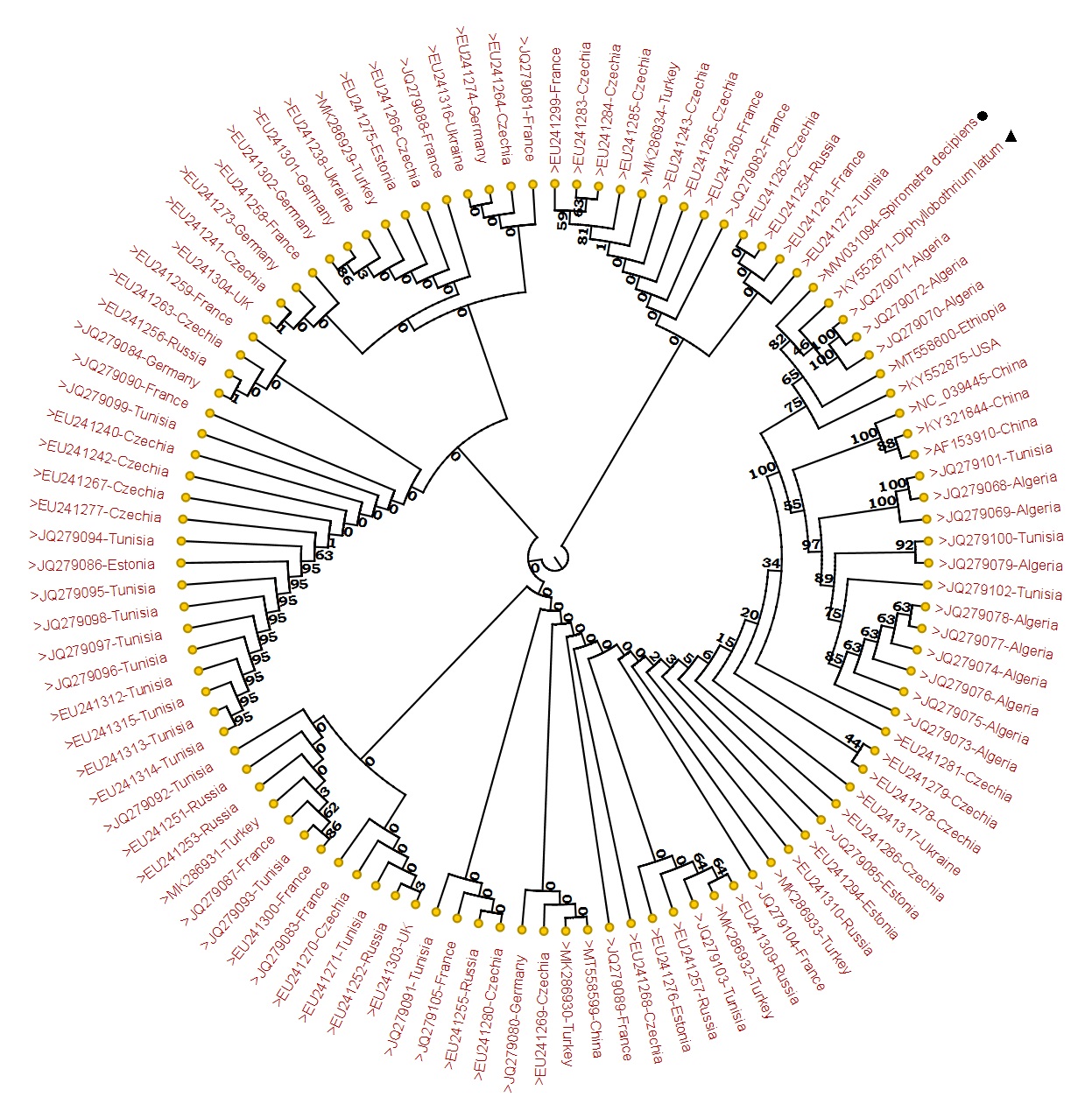Abstract
Ligula intestinalis is a cestode parasite that affects freshwater fish in different countries of the world. The current study aims to reveal the phylogenetic, genetic and haplotype diversity of mt-CO1 gene sequences sent to the NCBI database from different countries by using in-silico analysis. The 105 mt-CO1 (371 bp) gene sequences of L. intestinalis obtained from NCBI were used for bioinformatics analyses. Sequences were subjected to phylogenetic and haplotype analysis. As a result of the haplotype analysis of L. intestinalis, 38 haplotypes were obtained from 13 different countries. Hap24 constituted 44.76% of the obtained haplotype network. Changes in nucleotides between haplotypes occurred at 1-84 different points. China and Turkey have highest fixation index (Fst) values of 0.59761, while the lowest (-0.10526) was found between Russia and Turkey. This study provides a baseline for future studies on extensive scale on the epidemiology, ecological aspects, distribution pattern, transmission dynamics and population dispersion of L. intestinalis worldwide.
Keywords:
Ligula intestinalis; genetic variation; mt-CO1; in-silico analysis

 Thumbnail
Thumbnail
 Thumbnail
Thumbnail
 Thumbnail
Thumbnail


